“Veganism in an Oppressive World”
Book Review
by Dr Meneka Repka
Veganism in an Oppressive World (for Canadians), edited by Julia Feliz Bruek and published by Sanctuary Publishers (2017) is a timely volume that interrogates the relationships between veganism and other oppressions. In the current social and political context, people of colour (POC) and more specifically, vegans of colour (VoC) have a difficult and complicated relationship with mainstream anti-oppression spaces.
Building on important conversations started by A. Breeze Harper in Sistah Vegan (2009), Aph and Syl Ko in Aphro-ism (2017), and pattrice jones’ Oxen at the Intersection (2014), this montage of writing styles, genres, and approaches seeks to resist the single-issue campaigns that fragment rather than unify those of us in marginalized communities.
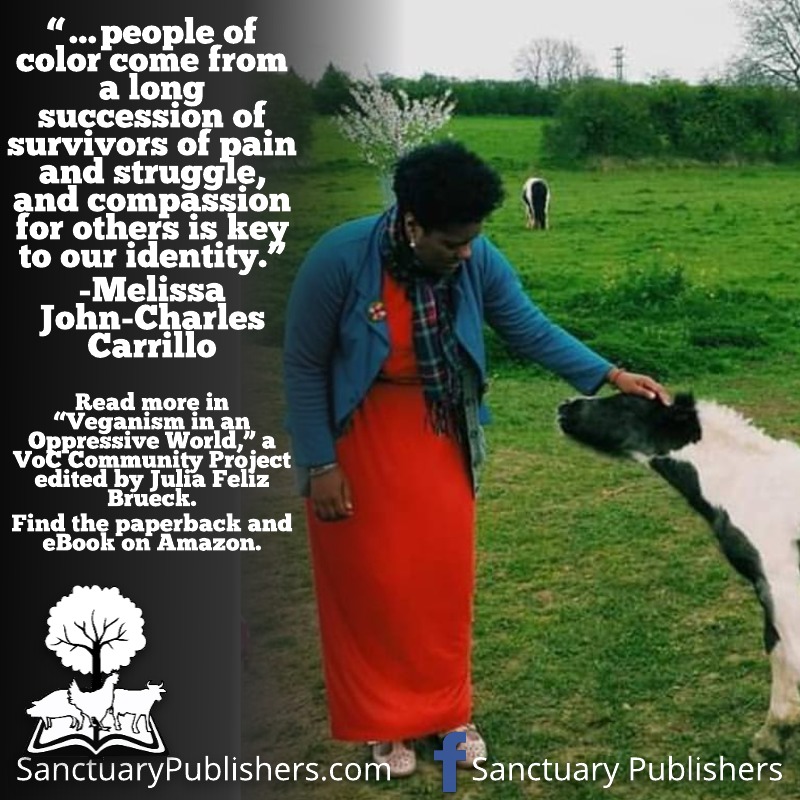
At its core, Veganism in an Oppressive World is a community project that uplifts and empowers VoC as well as nonhumans. This goal is met through a holistic and nuanced attention to individuals and groups who represent, honestly and sincerely, the tenants of pro-intersectional veganism.
As a rule, sales from every book produced by Sanctuary Publishers go to an organization that is committed to nonhuman liberation while also resisting human oppressions. This particular book contributes to Food Empowerment Project, and Feliz Bruek’s other recent publication Baby and Toddler Vegan Feeding Guide supports Chilis on Wheels. Additionally, Veganism in an Oppressive World, from conception to execution was produced as a collaborative effort by VoC. The cover illustration, design, editing, and written pieces were all contributions from VoC, many of whom experience several interlocking oppressions besides being racially marginalized.
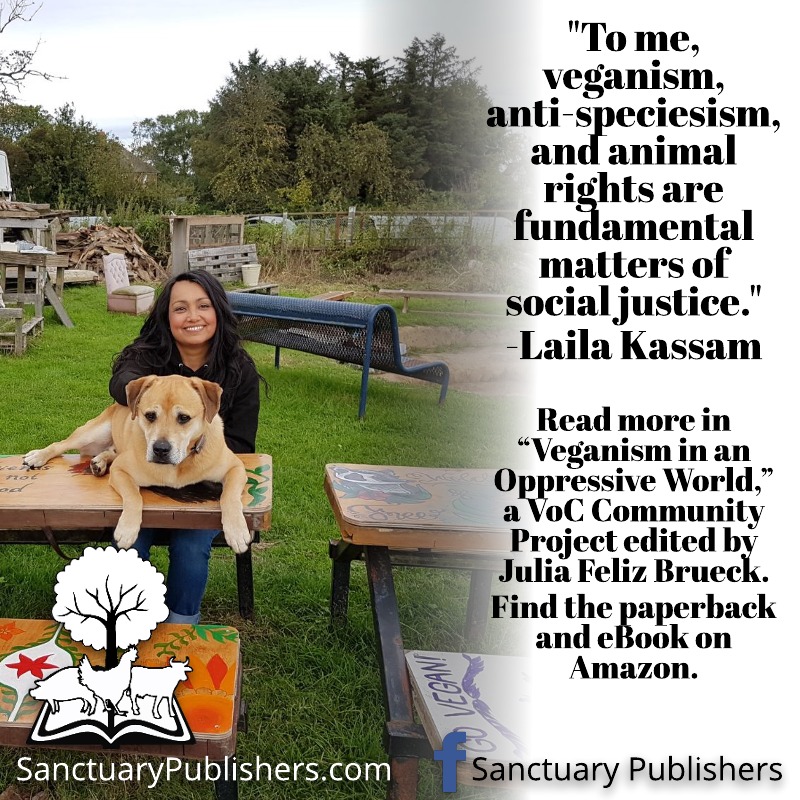
Veganism in an Oppressive World asks the reader to consider veganism from a perspective that is often overshadowed by more privileged and dominant voices. The authors centre veganism as a political position that is compatible with and related to human oppressions, while drawing attention to the ways in which mainstream veganism has failed to recognize justice for human animals.
Thus, the book serves two primary functions:
- first, to invite disenfranchised humans into a type of veganism that is truly inclusive rather than dismissive, and
- second, to inspire those who are already vegan to expand their definitions of liberation beyond only non-humans.
The book is structured in a way that mirrors these intentions. It begins with an introduction by Feliz Bruek that concisely articulates the necessity for a pro-intersectional approach to veganism, condensing an expansive body of literature into several direct and clear recommendations for an inclusive vegan practice.
Moreover, the introduction guides the reader through current issues in veganism and how to navigate through them. For instance, many large vegan organizations have recently begun to embrace the term “intersectional” on a superficial level in order to maximize their reach with vegan audiences. As Feliz Bruek explains, cosmetic diversity is not intersectional, and intersectionality without proper representation from VoC results only in tokenization.
“We need,” writes Feliz Bruek, “thinkers from these communities to guide us in the conclusions we draw” (p. 28).
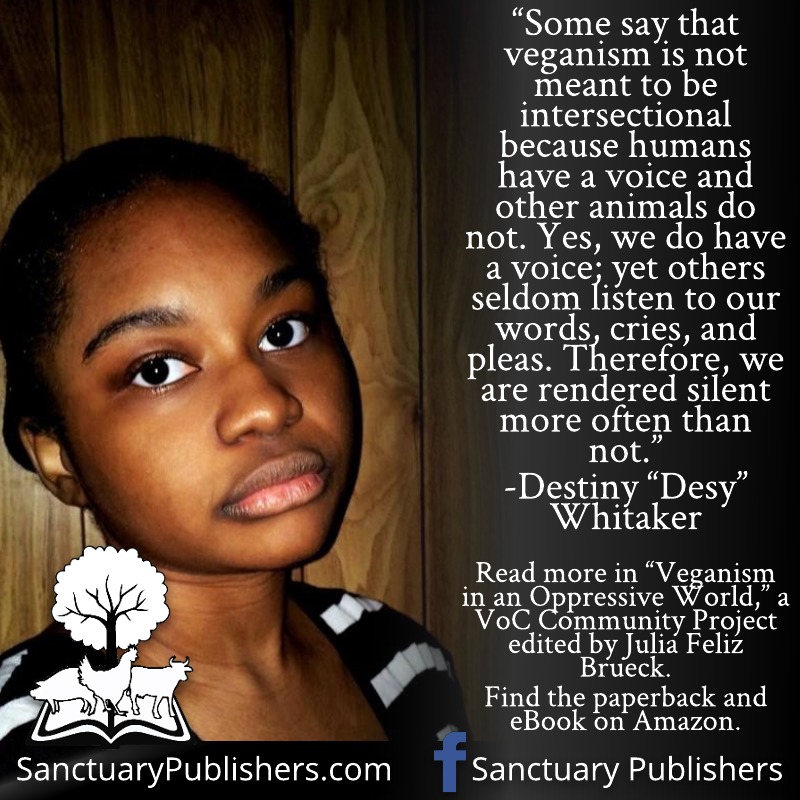
The second portion of the book highlights the voices of VoC through poetry, short reflections, essays, and interviews. Importantly, these deeply personal and thoughtful ruminations challenge the reader to explore iterations of veganism that are typically withheld from dominant (and primarily white) vegan spaces.
Drawing heavily from the traditions of auto-ethnography, these authors connect their own perceptions and experiences to wider social contexts and existing scholarship. Rooted in a careful and rigorous understanding of current literature, these authors point out the hypocrisy of vegan behaviours and actions, inspiring new theories, understandings, and meanings for what veganism can be.
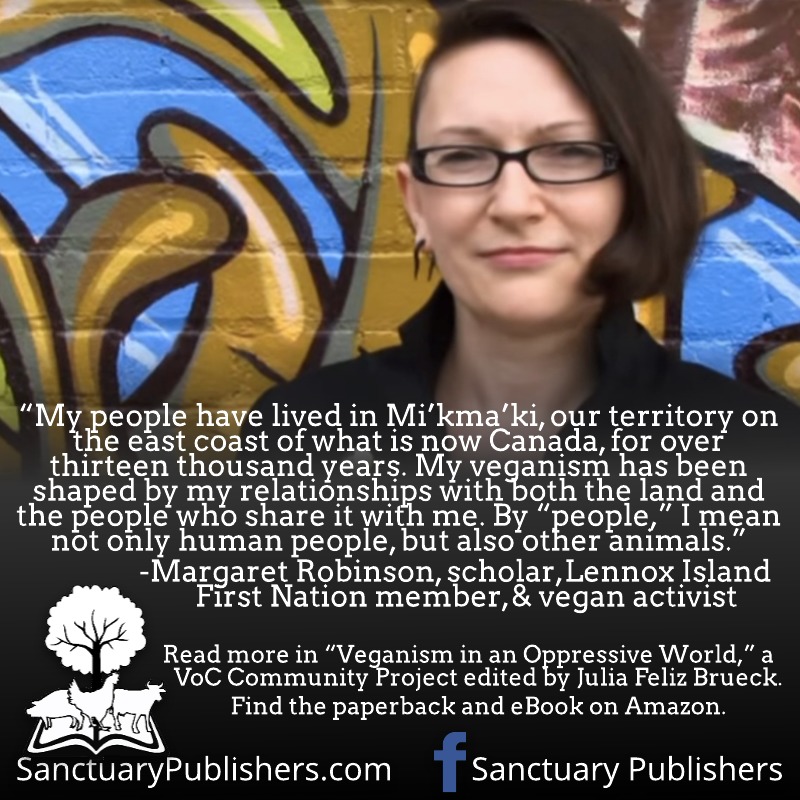
Veganism in an Oppressive World is a call to action; a kind of activism that asks the reader to question what they think they know about veganism. Already acclaimed by Dr. A. Breeze Harper and hitting number one on Amazon’s new releases in the Animal Rights category in its first week, this book is so necessary and important.
However, we must bear in mind that despite the leaps this book takes in presenting new and relevant ideas, it is only the beginning of a conversation about inclusivity and veganism.
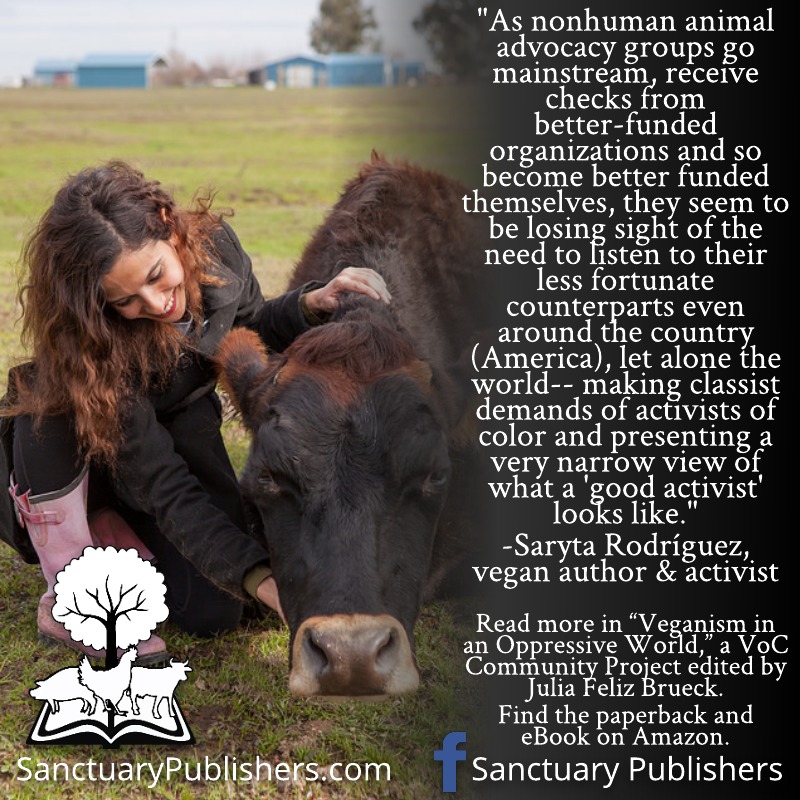
Follow Julia on Facebook and be sure to visit her portfolio too.
Follow Sanctuary Publishers on Facebook and find their website here.
Meneka Repka PhD (@menekarepka) is an instructor at Alberta College of Art and Design. Her current research questions the neutrality of curricular discourse in Alberta by examining how dominant interests in the meat industry influence schools. Prior to completing doctoral studies, she worked as a high school and junior high teacher. Meneka’s research interests include Animal liberation, Critical/Radical Animal Studies, Critical Sociology, Critical Race Studies, environmental sustainability, environmental education, discourse analysis, youth activism, and social justice education.

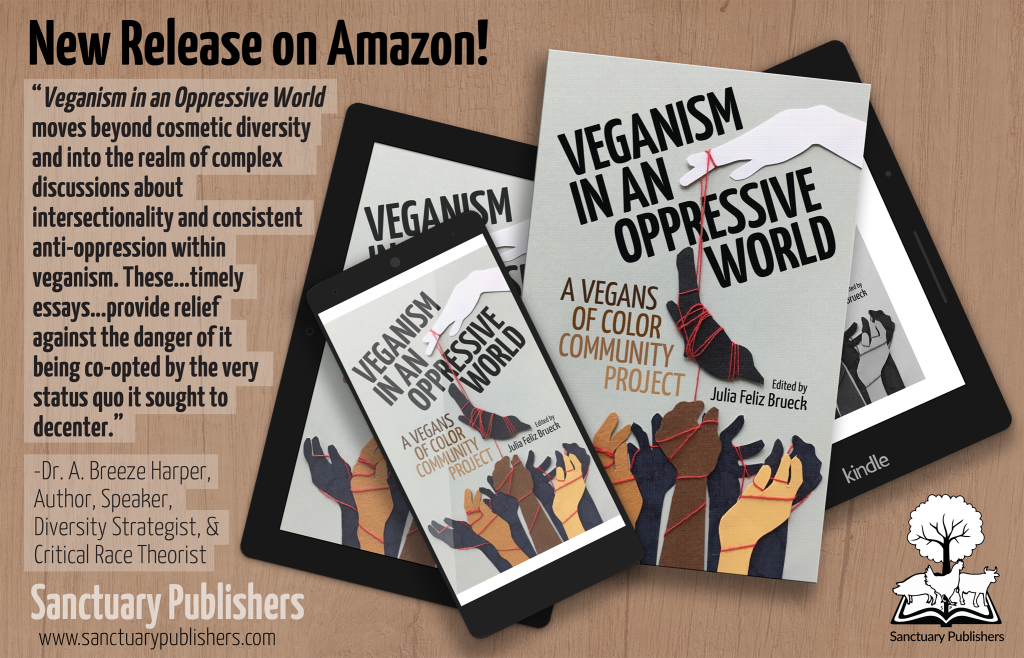
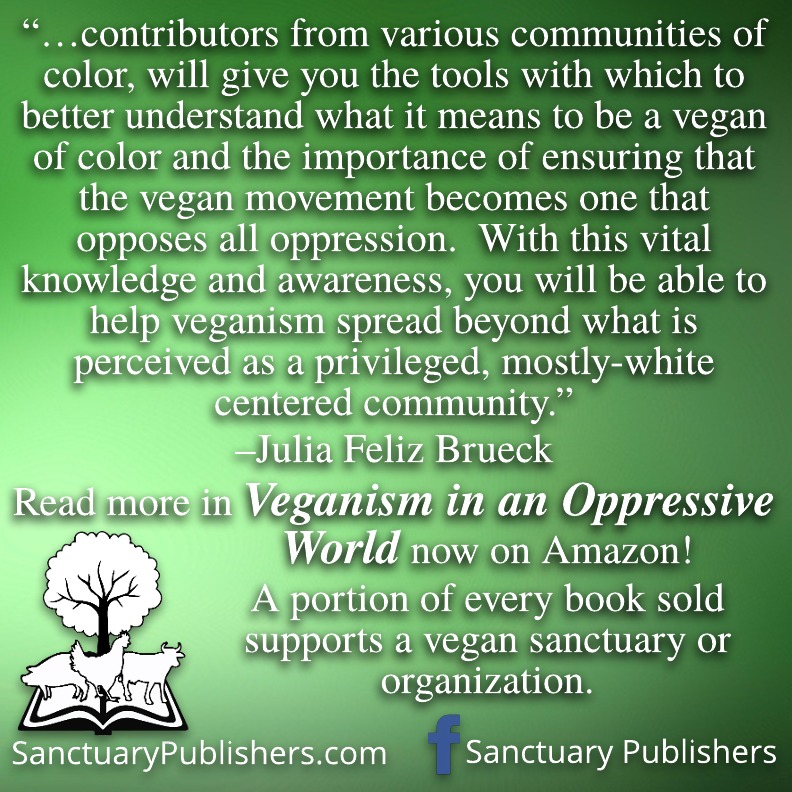
Leave a comment